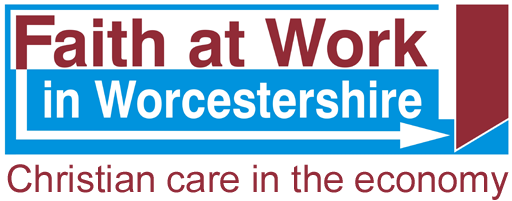Points of Contact for Workplace Chaplains, and Theological Reflection
The Kingdom of God involves us in caring for those in need (hungry, thirsty, homeless) and seeking justice for those who are exploited by those who have power.
The tax system, and decisions about public finances should provide a bias to the poor and powerless in society – providing resources and services people need to live healthy, meaningful and productive lives, God’s purpose and pleasure for all creation.
Employment, and the fruits of a person’s labour, should do the same. ‘The worker deserves his wages’ (Luke 10 v 7)
When it doesn’t there is an imperative to seek justice and mercy for others (Micah 6 v 8). This is also how we love our neighbour.
- Employer’s National Insurance (NI) contributions.
- April 2025 to rise from 13.8 to 15%
- Thresholds to reduce from £9,100 to £5,000, meaning employers will pay for those they previously didn’t (though there is some relief for small businesses)
- Business leaders have responded by saying this will mean plans for new jobs will be unaffordable, and businesses less sustainable because of the extra cost.
- Businesses are less able to be generous to workers in pay settlements and benefits.
- Estimated to produce an extra £25bn revenue.
- Income tax
- Rates and thresholds frozen until April 2028
- As wages rise annually so more people will begin to pay income tax, and some will move into a higher bracket. (Fiscal Drag)
- Inheritance Tax Agricultural Property Relief (APR)
- IHT charged at 40% on the value of any estate passed on after death. The first £325K is exempt (£500K if it includes your home passed to your children).
- The Agricultural Property Relief meant the whole value of farms was exempt.
- From April 2026 this changes to the first £1m, if the land had been owned and used by the owner for 2 years, (or 7 years, if rented out) with a 50% relief after that.
- Capital Gains Tax
- Significant rises in rates
- Together with changes to APR estimated to produce an extra £14bn
- Investment
- With higher tax revenues, and borrowing (£100bn over the next 5 years), government spending in some sectors will be increased.
- Education, Health and Social and Affordable housing will be targeted.
- VAT
- From January 2025, VAT of 20% on private schools
- For those with lowest incomes some reliefs from April 2025 including:
- National Living Wage
- For 21 yrs or above. to increase from £11.44/hr, to £12.21 (6.7%)
- National Minimum Wage Rates for people under 18 – 20 to rise 16.3%, to £10.00/hr
- Apprentices and 16 – 17 yrs, rise by 18% to £7.55/hr
- Universal Credit (UC) clawback
- This refers to how much of someone’s UC would be clawed back if someone had been overpaid. The rate is being reduced from 25% to 15%, meaning that the clawback is spread over a longer period.
- Carers Allowance
- Weekly earnings limit to rise from £151/wk to £196/wk
- National Living Wage
- Does this Budget make the UK more equitable? Does it level the playing field, helping the lowest paid and those on low incomes? Not necessarily.
- This budget has avoided raising direct taxes on those most able to afford it – for political reasons.
- Instead, investments in services which are essential for the least well-off (education, health and affordable housing) are to be paid for by increased borrowing and higher taxes on things that may impact most on those most vulnerable.
- Small improvements for the least well off are likely to be offset by increased costs on essentials (housing, energy, food) as a result of extra costs to businesses being passed on to consumers.
- Dick Johnson, Development Officer, November 26th 2024
